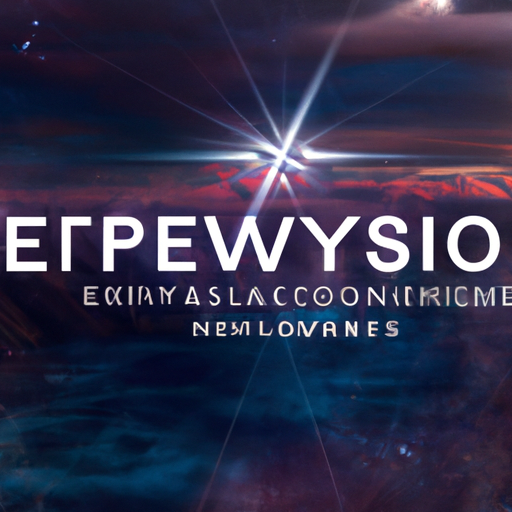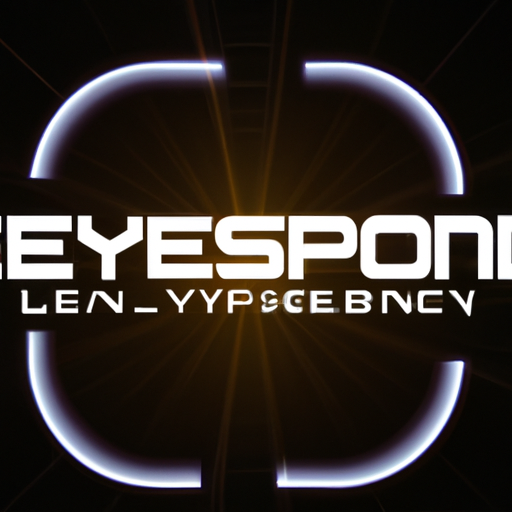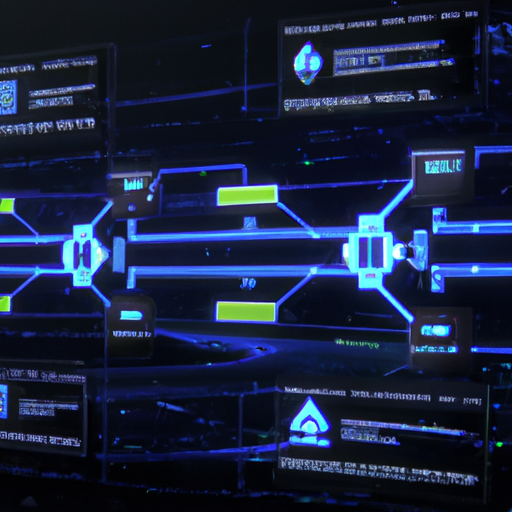-
Table of Contents
“Web3 Workwaves: Navigating the Future of Employment and Entrepreneurship in the Digital Era.”
Introduction
Web3 Workwaves: Employment and Business Opportunities in the Web3 Era is a comprehensive exploration of the emerging digital landscape, specifically focusing on the transformative impact of Web3 technologies on employment and business opportunities. This subject delves into the revolutionary shift from the traditional Web2 to the decentralized Web3, highlighting the potential for new job roles, innovative business models, and unprecedented economic prospects. It underscores the role of blockchain, cryptocurrencies, decentralized finance (DeFi), and non-fungible tokens (NFTs) in creating a more inclusive and transparent digital economy. The introduction aims to provide a foundational understanding of the Web3 era and its implications for the future of work and entrepreneurship.
Introduction to Web3 Technologies
Web3 technologies are rapidly transforming the digital landscape, ushering in a new era of internet usage that is decentralized, secure, and user-centric. This paradigm shift, often referred to as the Web3 era, is not only revolutionizing how we interact online but also creating a plethora of employment and business opportunities.
Web3, or the decentralized web, is the third generation of internet services that leverages blockchain technology and cryptographic principles to create a more democratic digital ecosystem. Unlike the current Web2 model, where a handful of tech giants control the majority of online services and data, Web3 aims to distribute power back to the users. It achieves this by enabling peer-to-peer interactions without the need for intermediaries, ensuring data privacy, and promoting digital ownership.
The core of Web3 technology is blockchain, a decentralized ledger that records transactions across multiple computers. Blockchain’s inherent transparency and immutability make it an ideal foundation for a more secure and trustworthy internet. It’s the technology that underpins cryptocurrencies like Bitcoin and Ethereum, but its potential extends far beyond digital currencies.
Smart contracts, for instance, are self-executing contracts with the terms of the agreement directly written into code. They operate on the blockchain, ensuring that all parties can trust the contract because it is unalterable and transparent. This technology is already disrupting industries like real estate, finance, and supply chain management, creating new job roles for blockchain developers, smart contract auditors, and blockchain consultants.
Decentralized finance (DeFi) is another burgeoning field within the Web3 space. DeFi aims to recreate traditional financial systems in a decentralized manner, removing the need for banks and other financial intermediaries. This sector is ripe with opportunities for financial analysts, risk managers, and software developers with a deep understanding of blockchain technology.
Non-fungible tokens (NFTs) are another product of Web3 technologies that have gained significant attention. NFTs are unique digital assets that represent ownership of a specific item or piece of content. The NFT boom has opened up new avenues for artists, creators, and collectors, as well as for developers and marketers specializing in this niche.
Web3 technologies are also fostering new business models. Decentralized Autonomous Organizations (DAOs), for example, are organizations governed by smart contracts, with decisions made collectively by its members. DAOs are creating opportunities for entrepreneurs and innovators who want to build democratic, transparent organizations in the digital realm.
In the Web3 era, data privacy and security become paramount. This has led to a surge in demand for cybersecurity professionals who can safeguard the decentralized web. Similarly, the need for user-friendly interfaces for Web3 applications is creating opportunities for UX/UI designers who understand the nuances of blockchain and crypto.
The Web3 era is still in its infancy, and as it continues to evolve, it will undoubtedly create even more employment and business opportunities. However, to fully leverage these opportunities, individuals and businesses must equip themselves with the necessary knowledge and skills. Understanding blockchain technology, smart contracts, DeFi, NFTs, and DAOs is no longer optional for those who want to stay ahead in the digital age. The Web3 wave is here, and it’s reshaping the future of work and business in ways we are only beginning to understand.
Emerging Job Roles in the Web3 Sphere
As we transition into the Web3 era, a new wave of employment and business opportunities is emerging. This digital revolution, characterized by decentralized networks and powered by blockchain technology, is creating a paradigm shift in the way we work, conduct business, and interact online. The Web3 sphere is not just about cryptocurrencies and NFTs; it’s about creating a more democratic, transparent, and user-centric internet. This shift is giving rise to a plethora of new job roles and business opportunities that are set to redefine the future of work.
One of the most prominent job roles emerging in the Web3 sphere is that of a blockchain developer. These professionals are responsible for creating and implementing digital solutions using blockchain technology. They design and develop smart contracts, create decentralized applications (DApps), and ensure the security of blockchain systems. As more businesses adopt blockchain technology, the demand for skilled blockchain developers is skyrocketing.
Another key role in the Web3 era is that of a decentralized finance (DeFi) specialist. DeFi is a blockchain-based form of finance that does not rely on traditional financial intermediaries such as banks or brokerages. Instead, it utilizes smart contracts on blockchains, the most common being Ethereum. DeFi specialists are tasked with developing and managing these complex financial protocols, and their expertise is highly sought after in the burgeoning DeFi market.
Cryptocurrency analysts are also in high demand in the Web3 sphere. These professionals monitor and analyze trends in the cryptocurrency market, providing valuable insights to traders, investors, and financial institutions. They use a variety of tools and techniques to predict market movements, assess risk, and identify investment opportunities. As the cryptocurrency market continues to grow and evolve, the need for knowledgeable cryptocurrency analysts is expected to rise.
In addition to these technical roles, the Web3 era is also creating opportunities for professionals with a background in law, marketing, and business. Legal experts who understand the regulatory landscape of blockchain and cryptocurrencies are needed to navigate the complex legal issues that arise in this new digital frontier. Marketers with a deep understanding of the Web3 sphere are required to help businesses effectively communicate their blockchain-based products and services. And entrepreneurs who can identify and seize opportunities in the Web3 market are poised to lead the next wave of digital innovation.
The Web3 era is also opening up new avenues for remote work and gig economy. With the rise of decentralized autonomous organizations (DAOs), professionals can collaborate and contribute to projects from anywhere in the world, earning cryptocurrency for their efforts. This is creating a more inclusive and flexible work environment, where individuals are rewarded based on their contribution rather than their location or formal qualifications.
In conclusion, the Web3 era is reshaping the employment landscape, creating a host of new job roles and business opportunities. As we continue to explore and understand this new digital frontier, it’s clear that those who can adapt and evolve with the times will be best positioned to thrive in the Web3 workforce. Whether you’re a developer, analyst, marketer, or entrepreneur, the Web3 sphere offers a wealth of opportunities to leverage your skills and make your mark in the digital world.
Business Ventures: Riding the Web3 Wave

As we stand on the precipice of the Web3 era, a new wave of employment and business opportunities is beginning to swell. This digital revolution, characterized by decentralized networks and powered by blockchain technology, is poised to redefine the way we work, transact, and interact online. For those ready to ride the Web3 wave, the potential for innovation, entrepreneurship, and financial growth is immense.
Web3, or the decentralized internet, is a concept that envisions a more democratic and user-centric online world. Unlike the current Web2 model, where a handful of tech giants control data and profits, Web3 aims to distribute power and wealth more equitably among users. This paradigm shift is creating a fertile ground for new Business Ventures and employment opportunities.
One of the most significant areas of growth in the Web3 era is in the realm of decentralized finance, or DeFi. DeFi platforms leverage blockchain technology to offer financial services such as lending, borrowing, and trading without the need for traditional intermediaries like banks. This sector is ripe for innovation, with opportunities for entrepreneurs to create new platforms and for professionals to find employment in areas such as smart contract development, risk assessment, and regulatory compliance.
Another burgeoning field in the Web3 era is the creation and trading of non-fungible tokens (NFTs). NFTs are unique digital assets that can represent ownership of a wide range of items, from digital art to virtual real estate. The NFT market has exploded in recent years, creating opportunities for artists, collectors, and entrepreneurs. Moreover, the need for platforms to mint, trade, and manage NFTs has led to a surge in demand for blockchain developers, digital asset managers, and legal experts.
The Web3 era is also ushering in a new age of decentralized autonomous organizations (DAOs). DAOs are organizations run by smart contracts on a blockchain, with decisions made collectively by members. They offer a radical new way of organizing work and creating value, with potential applications in everything from venture capital to content creation. For those with a pioneering spirit, DAOs present opportunities to shape the future of work and business.
However, the Web3 wave is not just about creating new types of businesses. It’s also about transforming existing ones. Many traditional industries, from finance to entertainment, are beginning to explore how blockchain technology can enhance their operations, improve customer experiences, and create new revenue streams. This trend is creating a demand for professionals who can bridge the gap between the old and the new, combining industry expertise with a deep understanding of blockchain technology.
In conclusion, the Web3 era is set to revolutionize the world of work and business. From DeFi and NFTs to DAOs and blockchain-enhanced traditional industries, the opportunities for employment and entrepreneurship are vast and varied. However, riding the Web3 wave requires more than just technical skills. It also requires a willingness to embrace new ways of thinking, a readiness to navigate uncharted waters, and a commitment to building a more equitable and user-centric digital world. For those who are up to the challenge, the rewards could be extraordinary.
Skills for Web3 Readiness
As we transition into the Web3 era, a new wave of employment and business opportunities is emerging. This digital revolution is not only transforming the way we interact online but also reshaping the job market and business landscape. To ride this wave successfully, it’s crucial to understand the skills needed for Web3 readiness.
Web3, or the decentralized web, is the next generation of the internet. It leverages blockchain technology and cryptocurrencies to create a more transparent, secure, and user-centric online environment. This shift from Web2 to Web3 is creating a demand for a new set of skills.
Firstly, understanding blockchain technology is fundamental. Blockchain is the backbone of Web3, powering everything from cryptocurrencies to decentralized applications (dApps). It’s a distributed ledger technology that ensures transparency and security in digital transactions. Therefore, proficiency in blockchain technology is a highly sought-after skill in the Web3 era. This includes understanding how blockchain networks operate, how to develop and maintain them, and how to leverage them for various applications.
Secondly, coding and programming skills are more important than ever. While Web2 relied heavily on languages like JavaScript, HTML, and CSS, Web3 has brought new languages to the forefront. Solidity, for instance, is a programming language used for writing smart contracts on Ethereum, one of the leading blockchain platforms. Similarly, Rust and Go are commonly used in blockchain development. Learning these languages can open doors to numerous job opportunities in the Web3 space.
Thirdly, knowledge of cryptocurrencies and digital assets is essential. Cryptocurrencies like Bitcoin and Ethereum are the lifeblood of the Web3 ecosystem. They’re used for everything from transactions to incentivizing network participation. Understanding how these digital assets work, how to trade them, and how they’re regulated is crucial. Additionally, knowledge of Non-Fungible Tokens (NFTs) and Decentralized Finance (DeFi) can provide a competitive edge in the Web3 job market.
Moreover, cybersecurity skills are increasingly important in the Web3 era. With the rise of digital assets and decentralized networks, ensuring the security of transactions and data is paramount. This includes understanding how to protect against cyber threats, how to secure digital wallets, and how to maintain the integrity of blockchain networks.
Finally, soft skills like adaptability, problem-solving, and critical thinking are invaluable in the Web3 era. The landscape is evolving rapidly, with new technologies and applications emerging regularly. Being able to adapt to these changes, solve complex problems, and think critically about the implications of new technologies is key to thriving in the Web3 world.
In conclusion, the Web3 era is ushering in a new wave of employment and business opportunities. However, to capitalize on these opportunities, it’s important to equip oneself with the right skills. Understanding blockchain technology, learning new programming languages, gaining knowledge of cryptocurrencies and digital assets, enhancing cybersecurity skills, and honing soft skills are all crucial for Web3 readiness. As we continue to navigate this digital revolution, those who are prepared will be best positioned to seize the opportunities that Web3 presents.
Legal and Ethical Implications of Web3
As we transition into the Web3 era, a new digital frontier is emerging, replete with novel employment and business opportunities. However, this shift also brings with it a host of legal and Ethical Implications that must be carefully considered. Web3, or the decentralized internet, is a concept that leverages blockchain technology and cryptocurrency to create a more user-centric online environment. This paradigm shift is poised to revolutionize the way we work, trade, and interact online, but it also raises complex questions about privacy, security, and the rule of law.
One of the most significant legal implications of Web3 is the question of jurisdiction. In the traditional internet, or Web2, jurisdiction is typically determined by the physical location of the servers hosting a website or service. However, in the decentralized world of Web3, data is stored across a network of nodes, often spread across multiple countries or even continents. This raises complex questions about which laws apply in the event of a dispute and how those laws can be enforced.
Moreover, the pseudonymous nature of blockchain transactions presents a challenge to traditional legal frameworks. While this feature can enhance privacy and security, it can also be exploited for illicit activities such as money laundering or fraud. Regulators worldwide are grappling with how to strike a balance between protecting users’ privacy and ensuring accountability in this new digital landscape.
In addition to these legal challenges, the Web3 era also brings with it a host of Ethical Implications. The decentralized nature of Web3 has the potential to democratize access to digital resources and reduce the power of tech giants. However, it also risks exacerbating existing inequalities. For instance, the high energy consumption of many blockchain networks has led to concerns about environmental sustainability. Similarly, the volatility and speculative nature of many cryptocurrencies can lead to significant financial risks for uninformed or vulnerable users.
Furthermore, the shift towards a more user-centric internet also raises questions about digital literacy and access. While Web3 has the potential to empower users by giving them more control over their data and digital identities, it also requires a higher level of technical knowledge to navigate effectively. This could potentially exclude those without the necessary skills or resources, further deepening the digital divide.
In conclusion, the transition to Web3 presents a wealth of opportunities for employment and business. However, it also brings with it a host of legal and ethical challenges that must be carefully navigated. As we move forward into this new digital era, it is crucial that we engage in thoughtful and informed discussions about how to ensure that the benefits of Web3 are realized while minimizing potential harms. This will require collaboration between policymakers, technologists, and users, as well as a commitment to principles of transparency, accountability, and inclusivity. The Web3 era holds immense promise, but realizing this potential will require careful consideration of the legal and Ethical Implications that come with it.
Future Projections: Web3 in the Next Decade
As we stand on the precipice of the Web3 era, it’s clear that the digital landscape is set to undergo a seismic shift. The next decade promises to be a transformative period, with Web3 technologies poised to revolutionize employment and business opportunities.
Web3, or the decentralized web, is the next generation of the internet. It leverages blockchain technology and cryptocurrency to create a more democratic online space, where users have control over their data and transactions. This shift from centralized to decentralized systems is expected to create a plethora of new opportunities, particularly in the fields of employment and business.
In the realm of employment, Web3 is set to disrupt traditional work structures. The gig economy, already a growing trend, is likely to be further amplified by Web3 technologies. Blockchain-based smart contracts can facilitate peer-to-peer transactions, eliminating the need for intermediaries. This means that freelancers and contractors could negotiate and secure work contracts directly with clients, with the blockchain ensuring transparency and trust.
Moreover, the rise of decentralized autonomous organizations (DAOs) could redefine the concept of work itself. DAOs are organizations run by smart contracts, with decisions made collectively by members. This could lead to a more democratic work environment, where employees have a say in the direction of the organization. The potential for remote work is also likely to increase, as DAOs operate on the blockchain and are not tied to any physical location.
On the business front, Web3 offers a wealth of opportunities for entrepreneurs. The decentralized nature of Web3 opens up new avenues for business models that were previously impossible. For instance, businesses could leverage blockchain technology to offer unique products or services, such as tokenized assets or decentralized finance (DeFi) solutions.
Furthermore, the rise of non-fungible tokens (NFTs) presents a new frontier for businesses. NFTs are unique digital assets that can represent ownership of a wide range of items, from digital art to virtual real estate. This opens up a whole new market for businesses to explore, with the potential for significant profit.
However, it’s important to note that the transition to Web3 will not be without challenges. Issues such as data privacy, security, and the digital divide will need to be addressed. Additionally, regulatory frameworks will need to evolve to keep pace with the rapid technological advancements.
In conclusion, the next decade of Web3 promises to be a period of significant change and opportunity. The shift towards a more decentralized internet will disrupt traditional work structures and business models, creating a wealth of new opportunities. However, it will also present challenges that will need to be navigated carefully. As we move into this new era, it’s clear that those who are able to adapt and innovate will be best positioned to thrive in the Web3 world.
Q&A
1. Question: What is Web3?
Answer: Web3, or Web 3.0, refers to the next generation of internet services that leverage blockchain technology and decentralized networks. It aims to create a more open, trustless, and permissionless internet where users have full control over their data.
2. Question: How does Web3 impact employment opportunities?
Answer: Web3 opens up new employment opportunities in fields like blockchain development, decentralized finance, and non-fungible tokens. It also enables new work models such as decentralized autonomous organizations (DAOs) where work is more flexible and democratic.
3. Question: What are some business opportunities in the Web3 era?
Answer: Business opportunities in the Web3 era include creating decentralized applications (dApps), launching blockchain-based services, developing NFT marketplaces, providing blockchain consulting services, and starting decentralized finance (DeFi) platforms.
4. Question: What skills are needed for Web3 jobs?
Answer: Skills needed for Web3 jobs include knowledge of blockchain technology, proficiency in programming languages like Solidity for Ethereum development, understanding of smart contracts, and familiarity with decentralized finance and NFTs.
5. Question: How can one prepare for the Web3 era?
Answer: One can prepare for the Web3 era by learning about blockchain technology, understanding how cryptocurrencies work, gaining programming skills, staying updated with the latest trends in the Web3 space, and experimenting with using decentralized applications.
6. Question: What are Web3 Workwaves?
Answer: Web3 Workwaves refer to the new trends and shifts in work culture and employment opportunities brought about by the advent of Web3. This includes the rise of remote and flexible work, the growth of DAOs, and the demand for skills related to blockchain and decentralized technologies.
Conclusion
In conclusion, Web3 Workwaves present a transformative shift in employment and business opportunities. The Web3 era, characterized by decentralized networks and blockchain technology, offers a new level of transparency, security, and efficiency. It opens up possibilities for remote and flexible work, peer-to-peer transactions, and innovative business models. It also fosters entrepreneurship and creativity, as individuals can create and monetize their own digital assets. However, it also poses challenges such as regulatory issues and the digital divide, which need to be addressed to fully harness its potential.



